

Interviews
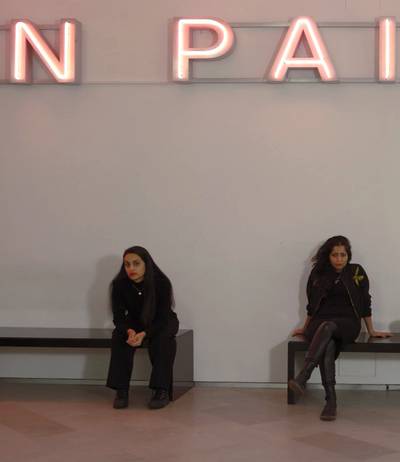

Oppression is not always visible in the Nordics. Many believe they have come far, but it becomes clear who truly faces the systematic stripping of identity. This is especially evident for non-white people. While others assume progress has been made, it is we who reveal that their successes are often an illusion.
READA True Artistic Sisterhood: A Conversation Between Saadia Hussain & Nayab Noor Ikram
What does it mean to create from in-between worlds? In this intimate conversation, Saadia Hussain and Nayab Noor Ikram reflect on artistic freedom, intergenerational sisterhood, and the search for belonging. Drawing on their Nordic roots and Pakistani heritage, they reveal how art becomes both personal and political.
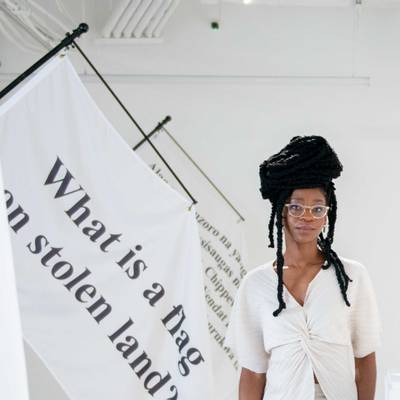

Colonial narratives, however, warped these histories, fetishizing these women, printing their images on postcards, and erasing the real story. I’m interested in uncovering these histories of ingenuity and resilience, how Black and Indigenous peoples made something out of nothing—and connecting them to the present. My work asks, what can we learn from these acts, and how might they shape the way we engage with each other today?
READRevealing a Quiet Slip in the Archive: An Interview with Kosisochukwu Nnebe
In a conversation with Golrokh Nafisi, Kosisochukwu Nnebe speaks of how she transforms food into living archives, tracing Indigenous and African knowledge through cassava and bananas, uncovering histories of resilience, resistance, and Black women’s ingenuity.
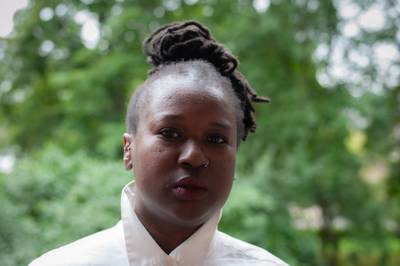

Simply using the material is an act of resilience – it asserts that bark cloth still holds significance for Ugandans today. In Uganda, I purchased a large quantity of it and visited the farmers who cultivate and care for the mutuba trees. This is generational work—many of these trees were planted by their fathers, their grandfathers, and even further back.
READMigration and the Politics of Belonging: An Interview with Sarah Nakiito
Ugandan-Swedish artist Sarah Nakiito discusses the evolution of her artistic practice, shaped by migration, the pandemic, and shifting notions of home. In this conversation, she reflects on her use of indigenous materials, the intersections of Swedish and Ugandan craft traditions, and the emotional weight of diasporic identity in her work.
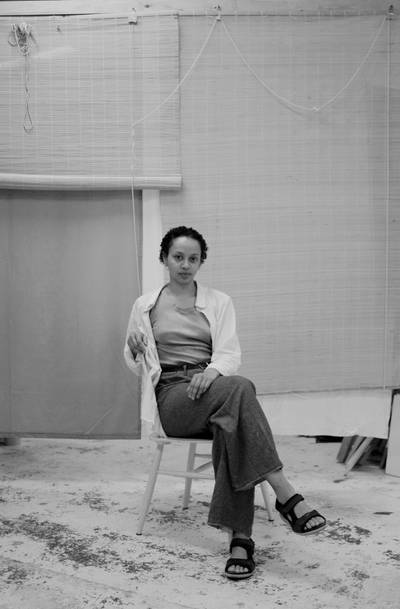

When a state is under attack and must defend itself, national identity becomes much clearer and more urgent. In contrast, in Finland, where we are not currently experiencing an immediate crisis, it is easier to question the role and necessity of national identity from such a privileged position. I’ve been reflecting on this in relation to places like Palestine and Ukraine, where national identity is deeply tied to survival and resistance.
READThe Shifting Grounds of National Identity: An Interview with Liisa-Irmelen Liwata
Liisa-Irmelen Liwata explores the intersections of body, land, and national identity through her art. In this conversation, she reflects on Finnishness, heritage, and the material transformations that shape her work, questioning both physical and conceptual borders along the way.
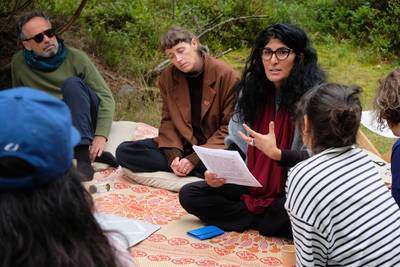

This interview grows out of that ongoing process of working, thinking, and speaking together. While it takes the form of questions and answers on the page, in reality, it unfolded as a dialogue: her narratives of Palestine, her frameworks of hospitality and self-determination, and her reflections on Sweden intertwined with my own questions, concerns, and the shared struggles I see myself as part of.
READCommoning Private Space: An Interview with Sandi Hilal
Palestinian architect, artist, and educator, Sandi Hilal, reflects on hospitality as a political practice, showing how private spaces – from living rooms to summer houses – can become sites of agency and collective self-determination.
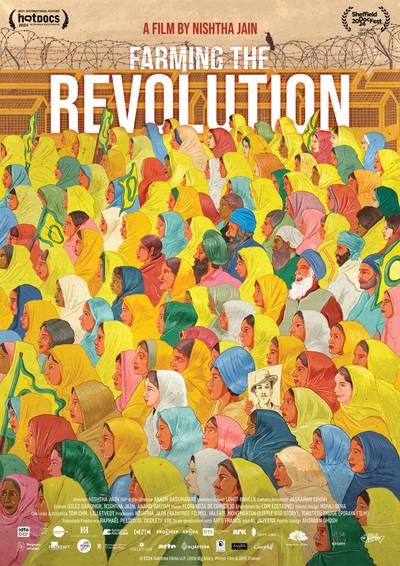

In her most recent work, Inquilab Di Kheti (Farming the Revolution, 2024), which is also her most ambitious, Nishtha traces the year-long farmers movement (2020-21) against the three unjust farm laws announced by the Indian Government in June 2020. Nishtha’s film opens up the everyday textures and rhythms of this massive and ultimately successful movement.
READCultivating Resistance: An Interview with Nishtha Jain
Ananya Parikh, a professor at the Symbiosis School for Liberal Arts, interviews India’s leading documentary filmmaker, Nishtha Jain, on her documentary Inquilab Di Kheti and the cinematic language of revolution.
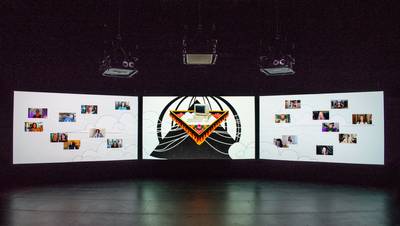

Drawing from personal and inherited rituals of listening and transmission, Athanasiou approaches channeling as a method of research and self-making, a way to attend to what remains inaudible. Voices treats the body as an instrument of transmission, an interface through which stories, desires, and ghosts circulate. The result is an unstable cosmology of voices that blur the line between belief and authorship, revealing how history itself might speak through us.
READMaking Friends Across Time: A Conversation Between Margarita Athanasiou and Lorena Juan
Through a correspondence that unfolded between Berlin, Athens, and Lesbos, artist Margarita Athanasiou and curator Lorena Juan exchange thoughts on voice, permission, and possession. Their letters trace how belief, friendship, and channeling become feminist technologies—ways of speaking through, and with, others across time, bodies, and worlds. Voices (2024), Athanasiou’s latest work, marks the starting point for this dialogue.
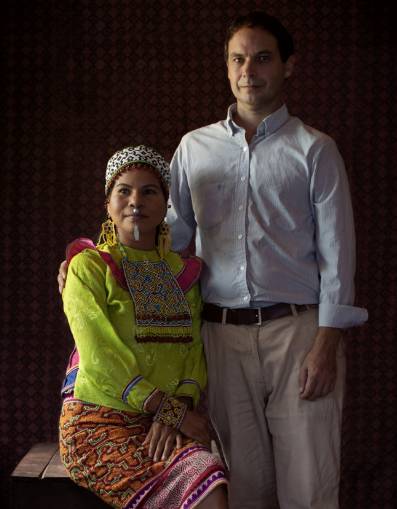

The Shipibo-Konibo are an Indigenous people of the Peruvian Amazon whose spiritual, artistic, and medicinal practices are profoundly intertwined with a vision of the universe as a web of living energies. Their knowledge is transmitted through songs, visions, master plants, and symbolic designs that operate as technologies of healing and communication with the non-human world.
READLanguage, Rituality & Technology: An Interview with Pedro Favaron
What if the most advanced technologies aren’t being developed in Silicon Valley but are already in the singing forest? Renzo Signori, in a conversation with Pedro Favaron, explores elements of Amazonian epistemologies and Shipibo-Konibo cosmology to propose a radical rethinking of language, ritual, and technology – not as tools of control, but as vibrant, relational forces rooted in healing and reciprocity.
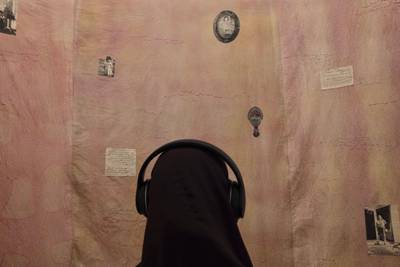

I think it scares me as a researcher to make all these claims, and then you do the fieldwork and find out it’s not as easy as you thought; you can’t put humans into boxes, and you certainly can’t enforce any of these notions onto them.
READAn Anti-Archive of the Present: An Interview with Jood AlThukair
Jood AlThukair’s ‘With the Feather in Our Throat’ creates a living anti-archive of women in Riyadh, navigating the challenges of nostalgia, language, and loss while resisting institutional erasure.
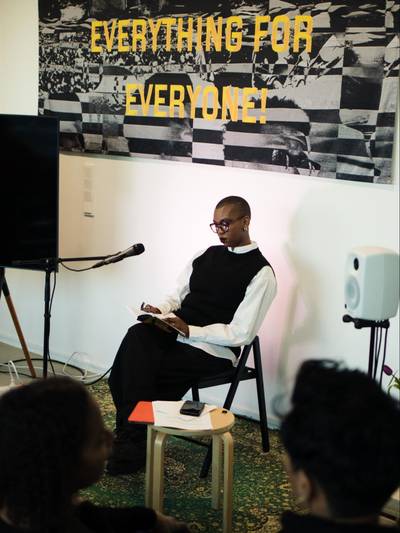

I think of how many people are not able to be involved in social movements because of their own disability or their caring responsibilities, or the way that forms of social violence take away their capacity, or their ability to fight that social violence, because they’re simply trying to stay alive.
READDreaming of Liberation: An Interview with Lola Olufemi
AK Wane and Lola Olufemi discuss what we can learn from archives of revolutionary movements and which lessons to bring into modern activist practices.
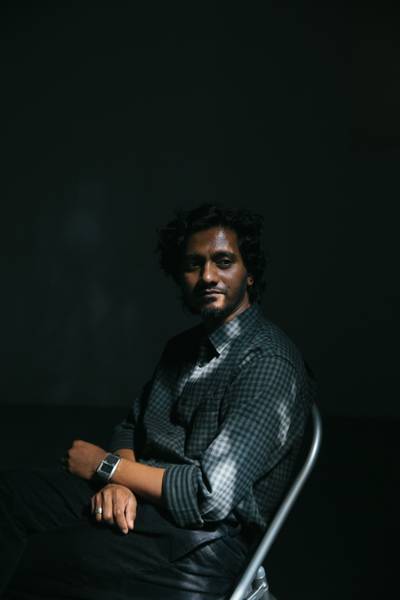

Amol Patil’s work addresses the harsh realities faced by the Dalit community, focusing on the lives of people living in Mumbai’s chawls and working as sanitation workers and manual scavengers. His sculptures, paintings, performances, and archival work strongly portray the deprivation of basic human needs – body, skin, touch, access to clean water, food, and land – and the brutal, animalistic existence they are forced to live in. He makes us see a community that remains invisible in the shadow of the city’s towering progress.
READLanguages of Resistance: An Interview with Amol K. Patil
Amol K. Patil, in an interview with Pranita Thorat, details the deeply personal and politically charged narratives of his practice, discussing how his work lays bare the realities of caste, labour, and displacement.
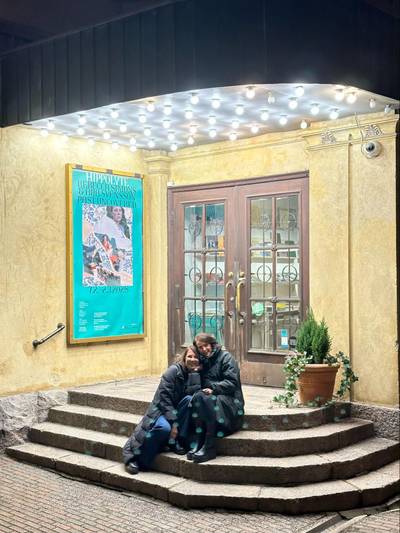

I cannot forgive the actions of abusers because if you’re an adult and you abuse little children because you are traumatised yourself, it can’t be justified in any way. By creating this project, I feel we, the women in the family, are taking the power back. It’s not the abuser controlling what we can and cannot say. That is an important feeling for me.
READNormality That Should Not Exist: An Interview with Rebecca Simons & Aija Svensson
In an interview with Hanna Linnove, artists Rebecca Simons and Aija Svensson discuss Past Uncovered, an exhibition addressing domestic violence and sexual abuse.